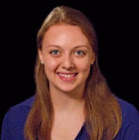
While advances in medicine occur every day, there’s still no cure for aging. We might delay it with healthy eating, exercise, and brain games, but research from the lab for healthy aging at Emory University tells us that cognitive decline can begin as early as age 50.
Symptoms of Aging Vary — the Impact of Physicians Does Not
Of course, researchers do note that age-related changes vary widely from person to person. But for medical professionals (who are often above this age range and work in a field that has the potential to affect many lives), there will always be a concern that age-related decline could inflict dangerous outcomes for patients. And while other professions, such as airline pilots, are required to be regularly tested at age 40 (and are required to retire at age 65) medicine has not adopted similar policies. That’s definitely a good thing, considering over 25 percent of actively licensed physicians were age 60 and older in 2016.
Some medical programs have instituted policies requiring doctors over a certain age to undergo periodic physical testing and cognitive exams as a condition of renewing their privileges. But it’s a sticky topic — with the answer having huge implications for both physicians and their patients. Questions about how to conduct these tests are considered by physicians who worry about being pushed out by younger doctors, and patient advocates who worry about costly errors and fatal mistakes. Once testing procedures are put in place, there is another difficult question that must be answered: At which point of decline is it appropriate to limit a physician’s practice, or prevent them from practicing entirely?
This question can be argued about — and the answer likely has to do with an increased risk of violating that “do no harm” clause in the hippocratic oath. According to both researchers and physicians themselves, there are two factors besides age that determine whether a provider will end up providing less-than-quality care: their individual health and requirements of their work. These are vastly different for different people: While one doctor still competently practices complex medical procedures at 85, another’ work suffers at the age of 60. Some programs, like the University of California at San diego, perform intensive competency evaluations of doctors referred by state medical boards or hospitals, and the rest depend on self-monitoring.
The Difficulty of Self-Monitoring
Self-monitoring is a hard thing to do — studies often show that physicians aren’t good at recognizing their own decline. Based on the research on aging from Emory University, we see that normal, healthy aging involves cognitive decline in a few areas: “fluid” intelligence, or the ability to think logically and solve novel problems, recent memory recall and the formation of new memory, speed of processing, and divided attention (completing more than one task or objective at once). Other parts of cognitive functioning, such as crystallized intelligence, which refers to overall knowledge derived from education and experience, are resistant to change — and are at an all-time high in older doctors.
So while a medical professional may not notice a lessening ability to solve novel problems, they may instead notice a preference for certain work and decreased comfort in other practice settings. These preferences can be easily compensated for by putting a limit on the number of patients seen per day, or focusing on a more narrow breadth of cases with which the provider is extremely experienced.
Benefiting From the Wisdom of Older Physicians
Perhaps the question for aging physicians should not be how can we regulate their effect on medicine, but instead, how can we best pivot their work to put crystallized intelligence to use? It can be hard, especially in a traditional practice setting, to control these responsibilities, as roles may be fixed and standards kept at a level similar to work that the physician used to do. But many older doctors thrive in advisory or teaching roles, where they can impact younger colleagues.
And of course, locum tenens agencies are in a position to help, by finding roles that are best catered to an individual provider’s ability and preferences. In a physician-recruiter relationship, the physician is the constant, and the recruiter will try to find a job to fit the person, rather than trying to fit the person into the job. For aging physicians who know their worth and abilities, locum tenens are a great option to take control of their work — and their lives.
